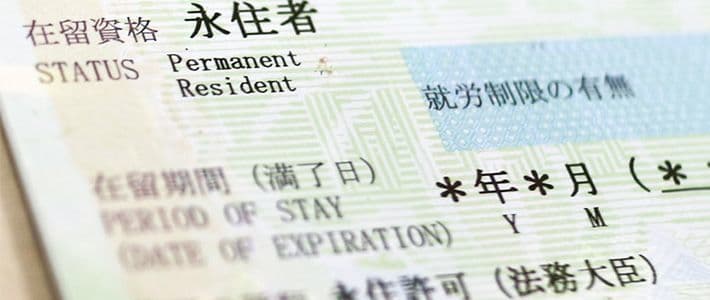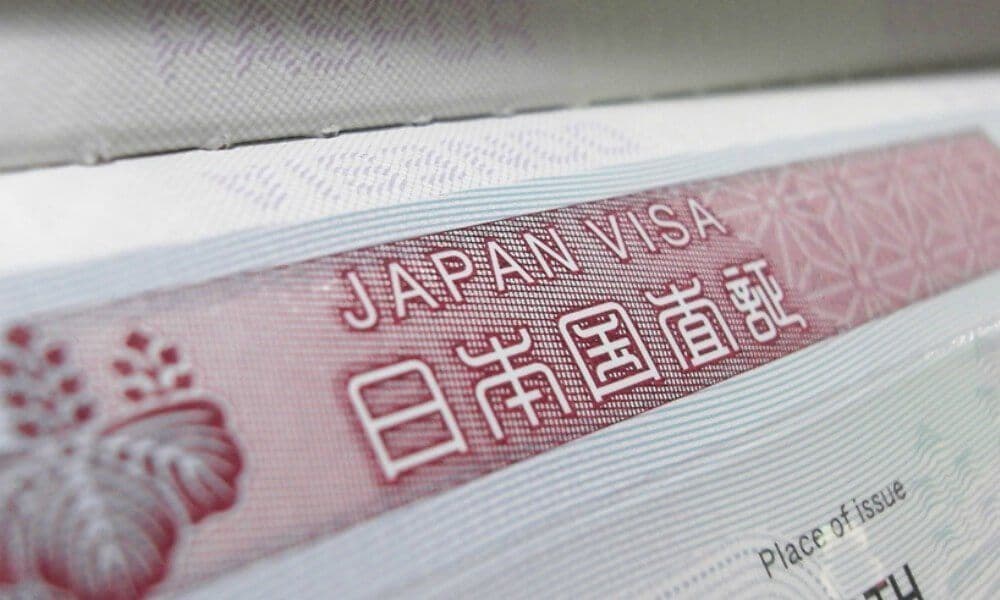
photo: shutterstock
*This is part 1 of a 2 part article
Have you ever thought about hopping on the next plane, leaving everything behind, and starting work or retirement in a new country? Or are you tired of the day to day repetition in your home country and want to start a new life abroad? What about Japan? Japan has beautiful scenery complete with modern skyscrapers, busy streets, ancient temples and who can forget the delicious sushi!
Some people think that it may be impossible to get a visa to live or work in Japan, but it may be easier than you think! There are several visa types that are available to foreigners.
Below we will list some of the most popular visa types that could possibly have you starting the job of your dreams or buying yourself a holiday home to relax in the land of the rising sun.
Working Holiday Visa (1 year maximum)

photo: shutterstock
Japan has a special relationship with certain countries which allows citizens of those regions to live and work in Japan for up to 1 year. This can be a great way to get your foot into the door and build your resume in Japan, which could lead to an extended stay and more work in the future. The visa usually allows for people between the ages of 18 - 30 years old to work in Japan (with certain restrictions). Below is the list of countries:
- Argentina
- Australia
- Austria
- Canada
- Czech Republic
- Chile
- Denmark
- France
- Germany
- Hong Kong
- Hungary
- Iceland
- Ireland
- Korea
- Lithuania
- New Zealand
- Norway
- Poland
- Portugal
- Slovakia
- Spain
- Taiwan
- United Kingdom
Citizens of other countries are currently not eligible for a working holiday visa in Japan.
Temporary Visa: Tourist and Business Traveler (6 months maximum)

photo: shutterstock
If you are just visiting Japan for tourism or a short business related trip. Most travellers from over 50 countries are granted visa free access upon entry to Japan. All you require is your valid passport, the majority of temporary visas allow for a 90 day stay in Japan.
However citizens from certain countries are allowed to extend their stay to a maximum period of 6 months. Those countries are:
- Austria
- Germany
- Ireland
- Liechtenstein
- Mexico
- Switzerland
- United Kingdom
Temporary visa holders are not allowed to do any form of paid work in Japan, however they are allowed to attend short term schools for study during their 6 month period.
Long Stay: Specific Visa (1 year maximum)

photo: nansei rakuen resorts
There is a special visa type available for individuals holding a certain amount of assets that allows them a maximum 1 year stay in Japan.
You are eligible for this visa If you are a citizen of one of 68 countries that Japan has a “visa exemption agreement” with, including:
Andorra
Argentina
Australia
Austria
Bahamas
Barbados
Belgium
Brunei
Bulgaria
Canada
Chile
Costa Rica
Croatia
Cyprus
Czech Republic
Denmark
Dominican Republic
El Salvador
Estonia
Finland
Former Yugoslav Republic of Macedonia
France
Germany
Greece
Guatemala
Honduras
Hong Kong
Hungary
Iceland
Indonesia
Ireland
Israel
Italy
Latvia
Lesotho
Liechtenstein
Lithuania
Luxembourg
Macao
Malaysia
Malta
Mauritius
Mexico
Monaco
Netherlands
New Zealand
Norway
Poland
Portugal
Republic of Korea
Romania
San Marino
Serbia
Singapore
Slovakia
Slovenia
Spain
Surinam
Sweden
Switzerland
Taiwan
Thailand
Tunisia
Turkey
United Arab Emirates
United Kingdom
United States
Uruguay
The only other requirement is that you and your spouse must have a minimum of 30 million yen in savings/assets. The purpose of this visa is for leisure activity only and does not allow the couple to work during their stay in Japan.
Work Visa: Specific Visa (5 year maximum, extendable)

photo: medium.com
If you would like to get an office type of job in Japan, there are several visa categories available depending on your professional field. Some of the fields that are allowed to be sponsored for a work visa in Japan are; engineering, international services , business management, journalism, arts, research, education and entertainment.
To qualify for this type of visa you would need a 4 year university degree, masters, Phd, or considerable professional experience in the related field. This kind of visa allows for a maximum 5 year stay and can be extended indefinitely and can lead to obtaining permanent residence. You are allowed to bring your spouse and dependants with you by obtaining a dependant visa for them, however they are not allowed to engage in paid work activity on their dependant visa, unless granted an exception by the Japan office of immigration.







